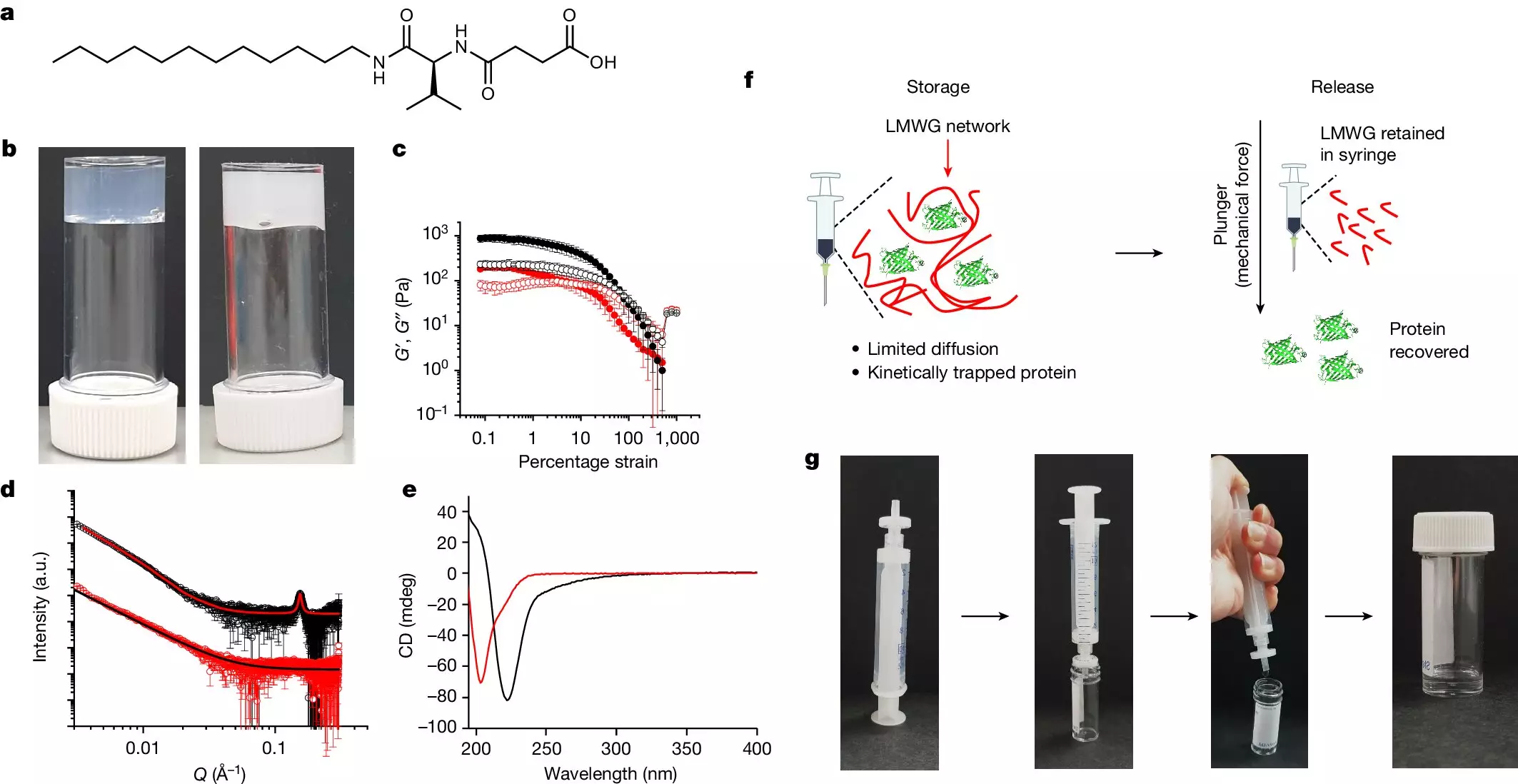The realm of healthcare technology is witnessing a pivotal transformation, particularly through innovative solutions aimed at improving the distribution and accessibility of protein therapeutics. A groundbreaking study unveiled in the prestigious journal *Nature* has introduced a novel hydrogel system capable of preserving vital protein-based therapies without the cumbersome dependency on refrigeration. This remarkable advancement comes from collaborative research efforts orchestrated by esteemed universities in the UK, namely Manchester, Glasgow, and Warwick. It brings a promising horizon for developing nations, where cold chain logistics often inhibit timely access to essential medications.
This breakthrough is not merely a technical achievement; it symbolizes a monumental shift in how we envisage healthcare distribution. For millions living in regions plagued by inadequate infrastructure, the typical reliance on cold storage can be a formidable barrier to obtaining life-saving treatments. By enabling protein drugs to remain stable and effective even in high temperatures, we can bridge a critical gap, bringing healthcare closer to those who need it most.
The Science Behind Hydrogel Innovation
At the heart of this advancement lies a sophisticated hydrogel constructed from a low molecular weight gelator (LMWG). This unique material forms a robust three-dimensional network of fibrous structures that ingeniously entraps proteins, effectively preventing their degradation while retaining their functional integrity. The hydrogel’s rigid yet brittle design creates an environment where proteins are safely housed, allowing for controlled release without the risk of harmful interactions or aggregation that typically compromise their efficacy.
The implications of this innovation are profound. As Professor Matthew Gibson from the University of Manchester aptly states, “[This technology] allows us to store and distribute proteins at room temperature, free from any additives.” This liberates the distribution process from the constraints of cold storage, making significant strides in patient care and accessibility. As the research suggests, the new hydrogel not only withstands increased temperatures but also proves resilient under various stress conditions—beneficial characteristics that could enhance the efficacy of distributed medications.
Resilience in Testing: A Promise of Effectiveness
The practicality of this hydrogel system has been rigorously tested, emphasizing its advantageous characteristics. The researchers administered several stress tests, including exposing insulin—a critical hormone for diabetes management—to extreme temperature fluctuations and mechanical agitation. Astonishingly, after undergoing rigorous testing, the insulin retained its integrity, showcasing 100% efficacy. Such results challenge the traditional norms of protein storage and distribution, affirming that the hydrogel can not only meet but exceed expectations in real-life medical applications.
Another promising application observed during this study involved the enzyme beta-galactosidase, which plays a crucial role in various biotechnological and medical settings. The hydrogel preserved this enzyme effectively at a daunting 50°C for a week, underlining its potential for long-term storage solutions. This challenges the status quo, where temperature control is a persistent concern, especially in rural areas lacking modern medical facilities.
Redefining Distribution Through Practical Solutions
The discovery of this hydrogel’s transportation viability has far-reaching implications not only for patients but also for healthcare providers and pharmaceutical companies. Imagine a scenario where critical therapies can be sent through regular postal services, circumventing the need for specialized transportation networks. This not only lowers the costs associated with medicine distribution but also encourages wider accessibility to those who may face significant obstacles in accessing traditional treatment methods.
In addition, with resources increasingly strained in the wake of global health crises, the demand for innovative solutions that are both economical and sustainable intensifies. The hydrogel’s energy-efficient nature aligns perfectly with the growing need for sustainable healthcare practices, notably in developing countries, where energy resources are often scarce.
Future Directions and Commercial Potential
As exciting as these findings are, they signify merely the beginning. The research team is already exploring commercial avenues to bring this patent-pending technology to market. The potential for this hydrogel spans beyond traditional applications; it could become integral in diagnostics, vaccine delivery, and therapies that presently rely on stringent storage conditions.
The recent advancements in protein storage technology exemplify the intersection of science and compassion, showcasing an intention to enhance healthcare equity. By liberating proteins from the constraints of refrigeration, this innovative hydrogel offers a beacon of hope for millions globally, promising a future where vital health resources are accessible to everyone, irrespective of their geographic or economic conditions. The potential of this hydrogel extends beyond medicine; it encapsulates a vision of equitable healthcare that is not just a dream but an achievable reality.

